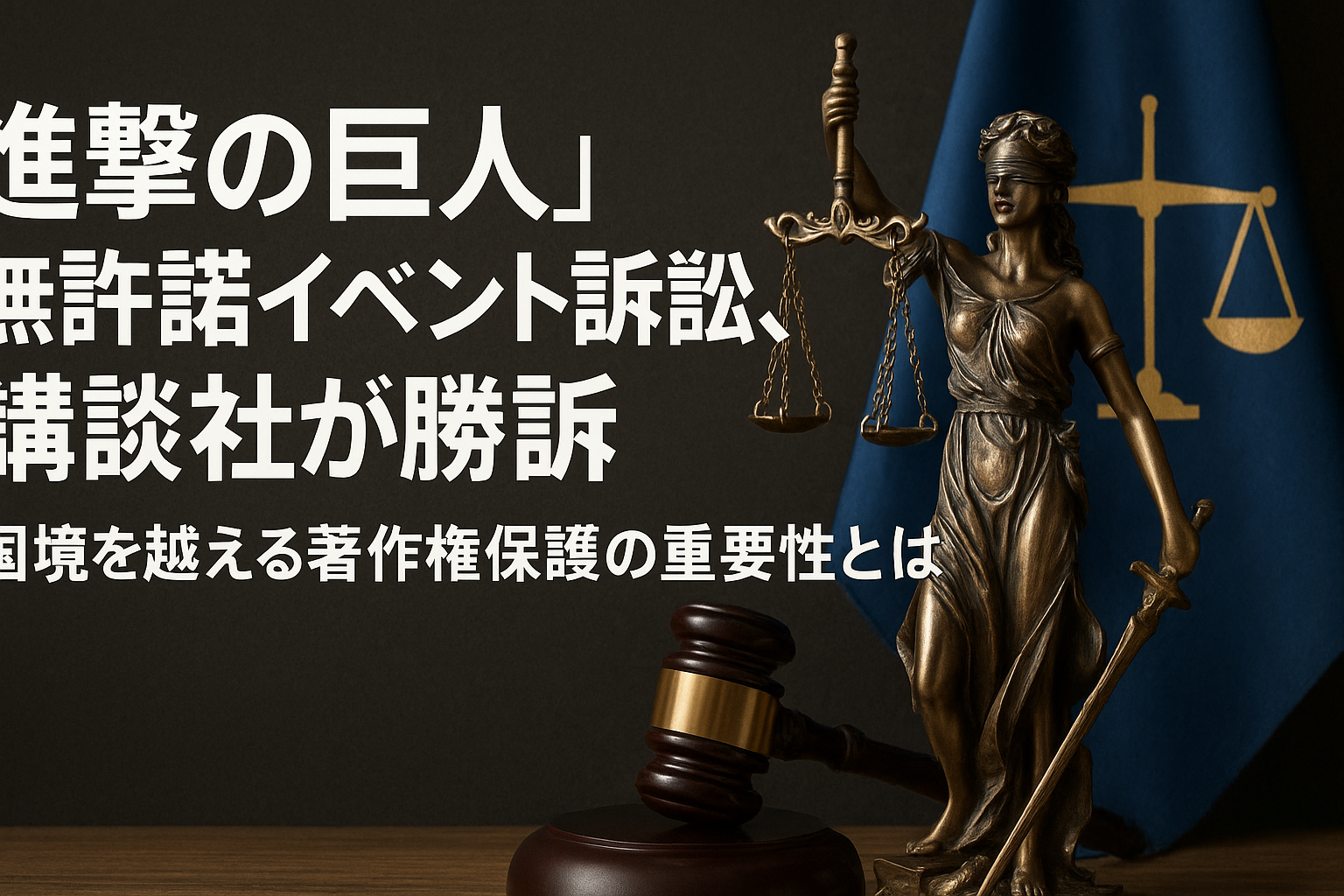On June 24, 2025, Kodansha concluded a copyright infringement lawsuit it had filed against Russian company IQ Art Management LLC, with the court largely ruling in favor of Kodansha. This case serves not only as a warning against the recent surge of unauthorized events but also as a symbol of the complexities and importance of protecting intellectual property in the global era.
Overview of the Case
The issue arose from a commercial event held in St. Petersburg, Russia, between April and October 2023. During this event, 18 of Kodansha’s works, including the globally popular Attack on Titan, were used as exhibits without permission, and entrance fees were charged for profit.
In response, Kodansha filed a lawsuit with the Arbitration Court in Russia. As a result, copyright infringement was recognized for 15 of the works, and the court ordered IQ Art Management LLC to pay approximately 6.9 million yen in damages.
Significance of the Ruling
This verdict is more than just a legal victory for a single company.
- A Precedent Promoting International Copyright Respect
In recent years, Japanese content such as manga and anime has gained worldwide popularity. However, unauthorized distributions and events remain persistent. The fact that a foreign court—in this case, in Russia—recognized a Japanese company’s copyright claims demonstrates that copyright is a right that should be respected across borders. This case is a symbolic affirmation of that principle.
- Balancing Cultural Enjoyment and Creators’ Rights
While fan event organizers may act out of goodwill, wanting more people to discover and enjoy popular works, that does not justify ignoring the rights of authors and publishers. Unauthorized commercial events that generate revenue without any return to the creators hinder the healthy growth of the cultural industry.
Future Outlook and Challenges
Kodansha has stated it will continue to “respond strictly to copyright infringements, both domestically and internationally.” However, legal action requires significant time and cost, making individual responses inherently limited. Going forward, a multifaceted approach will be essential—this includes international industry cooperation, the use of AI for detecting illegal content, and stronger promotion of official events.
As Japanese content continues to be beloved around the world, it is more important than ever for both companies and consumers to uphold copyright awareness as the foundation of culture. By choosing to enjoy works through official and legitimate channels, each of us plays a role in supporting the future of entertainment culture and ensuring the continued creation of the content we love.

